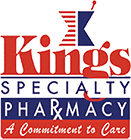The World Health Organization defines infertility as “a disease of the reproductive system defined by the failure to achieve a clinical pregnancy after 12 months or more of regular unprotected sexual intercourse,” in their glossary on Assisted Reproductive Terminology. Infertility is not solely a female issue, and the Center for Disease Control reported in 2002 that “7.5 percent of all sexually experienced men younger than 45 reported seeing a fertility doctor during their lifetime—this equals 3.3-4.7 million men. Of men who sought help, 18 percent were diagnosed with a male-related infertility problem.” In women, the Center for Disease Control reported that infertility affects “about 12 percent of women 15-44 years of age in the United States.”
However, there are a number of leading medications that can help couples suffering from infertility raise a family of their own. For example, there are several fertility clinics with a variety of specialties, be they medication or other advanced treatments, based out of just New York City. In the Health Grove directory for successful fertility clinics, over 100 clinics are located in the greater NYC area. These specific clinics help couples in New York, or those from anywhere in the country seeking the expertise found in these clinics, begin their own families with medications that will treat their specific vein of infertility. This is a growing field of study, as scientists are learning more and more about the female body and reproductive system.
The following are some of the medications referenced by the American Pregnancy Association (APA), as well as what they are prescribed for, what they do, and explained potential side effects. Most commonly, leading medications are used to treat and enhance ovarian stimulation and the prevention of premature ovulation.
These pertain specifically to ovarian stimulation, where women suffer from long, missed, or irregular period cycles.
Clomiphene Citrates
The APA notes that there are two medicinal options, by way of Clomiphene Citrates (CC): Clomid ® and Serophene ®. These medications elevate Follicle-Stimulating Hormone secretion in the pituitary glands. These Follicle-Stimulating Hormones (FSH) controls a woman’s menstrual cycle, as well as ovarian egg production. FSH levels are highest in women just before she ovulates. In men, FSH controls sperm production. Contrary to the fluctuations of FSH in women throughout their menstrual cycle, FSH levels in men are generally constant. The APA emphasizes that regulated FSH counts are integral to fertility. It is recommended by the APA and the American Society for Reproductive Medicine that “clomiphene be prescribed for only three to six cycles” because the “chances of side effects increases as the dosage increases.” Possible side effects of Clomid ®, Serophene ® and other clomiphene citrates include increased chances of: multiple birth, where a mother has more than one baby, which has increased by 74% from 1980 to 2000, in a study by the National Center for Health Statistics on twin births; miscarriage, defined by the APA as a “pregnancy ends on its own, within the first 20 weeks of gestation.” Other side effects of clomiphene citrates include headaches, mood swings, depression, nausea, hot flashes, breast tenderness, ovarian cysts and over stimulation of the ovaries, resulting in pelvic pain or discomfort.
Follicle Stimulating Hormones
Due to the importance of FSH in fertility, Follicle Stimulating Hormones have been developed as medication via injection, where it “bypasses the hypothalamus and pituitary glands to directly simulate follicle growth in the ovaries.” The most common FSH medications are Bravelle®, Follistim® and Gonal-F®. Bravelle® is a urofollitropin, “derived from the urine of postmenopausal women” and purified into the injection format, according to the New York Times’ health guide on infertility. Follistim® and Gonal-F® are both synthetic injections of FSH. The New York times also stated that these three common treatments are sometimes combined with a Human Chorionic Gonadotropin medication, which also triggers ovulation. Possible side effects of these treatments are: increased incidence of multiple birth and miscarriage, just as clomiphene citrates. These natural and synthetic urofollitropins also increase a chance of premature delivery, defined as a “birth that takes place more than three weeks before the baby is due,” according to the Mayo Clinic, a nonprofit practice based out of Rochester, Minnesota. Other side effects include swelling or rashes at the injections site, mood swings, depression, breast tenderness, abdominal pain, bloating and Hyper Stimulation Syndrome, which may be caused by enlarged ovaries.
Human Menopausal Gonadotropins
Another leading treatment is Human Menopausal Gonadotropins, which contain an equal balance of FSH and luteinizing hormones (LH), “given to stimulate the ovaries to produce multiple eggs during one cycle,” according to the APA. Luteinizing hormones, produced in tandem with FSH in the pituitary gland, triggers ovulation when there is a significant rise in production of the hormone. Three leading hMGs are Menopur®, Humegon® and Repronex®. Their side effects are in line with those of FSH medications, due to how similarly they function. hMG is derived similarly to FSH, from the urine of menopausal women. It is also delivered similarly, through a series of injections. They are “usually given for 7-12 days,” according to the New York Times.
Human Chorionic Gonadotropin
hCG, as mentioned previously, is closely tied to FSH and LH. hCG triggers the release of an egg in women. Natural drugs are “derived from the urine of pregnant women,” according to the New York Times. Leading, natural hCG medications are Pregnyl®, Novarel ®, Ovidrel® and Profasi®. The APA emphasizes that if taken independently, rather than in tandem with another medication as is recommended for other treatments, there are “no known side effects.”
In order to prevent premature ovulation, there is one medication vein recommended by the APA:
Gonadotropin-Releasing Hormone Analogs and Antagonists
Gonadotropin-Releasing Hormones (GnRH) are produced in the hypothalamus. They stimulate the production of FSH and LH by stimulating the pituitary gland. GnRH medications are synthetic. Analogs are used to “enable the body to produce a higher number of quality eggs, and preventing “the mid-cycle hormonal surge which can result in a cancelled cycle,” according to the APA. Lupron®, Zoladex® and Synarel® are the three leading analogs, the first two being injections and the latter a nasal spray, respectively. Potential side effects include: mood swings, vaginal dryness, pain during sexual intercourse, hot flashes, headache, insomnia, bone density loss, and decreased breast size. Antagonists such as Ganirelix Acetate® and Cetrotide® cause GnRH “to be released to help prevent premature ovulation,” according to the APA. Like analogs, antagonists are injections and have similar side effects.
Here are some helpful links and sources:
http://www.nytimes.com/health/guides/disease/infertility-in-women/medications.html
http://americanpregnancy.org/infertility/infertility-medications/
http://www.who.int/reproductivehealth/publications/infertility/art_terminology2/en/
http://www.cdc.gov/reproductivehealth/infertility/
http://www.cdc.gov/nchs/nsfg/key_statistics/i.htm#infertility





